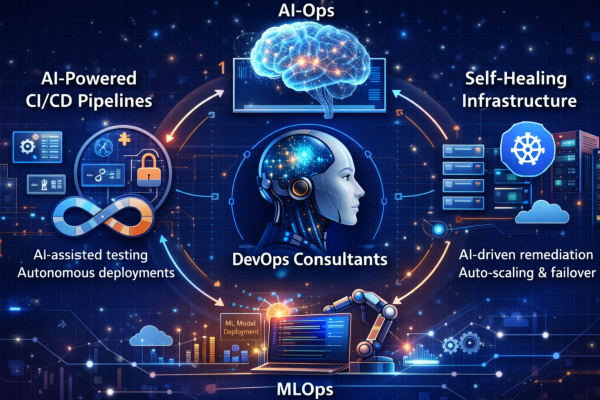Testing in DevOps: A Complete Guide
DevOps has revolutionized the way software development and IT operations teams work together to deliver high-quality software at a faster pace. One integral part of the DevOps process is testing. In this comprehensive guide, we will explore the importance of testing in DevOps, various testing types, and best practices to ensure your DevOps pipeline runs smoothly.
1. The Role of Testing in DevOps
DevOps aims to break down silos between development and operations teams, emphasizing collaboration, automation, and continuous feedback. Testing plays a crucial role in achieving these goals by ensuring that code changes are thoroughly checked for quality, security, and functionality before they are deployed.
2. Types of Testing in DevOps
- Unit Testing: Developers write unit tests to verify the correctness of individual code components or functions. Automated unit tests are essential for identifying and fixing issues early in the development cycle.
- Integration Testing: This type of testing focuses on validating that different modules or components of the application work together as expected. Integration tests help identify communication issues between other parts of the system.
- Functional Testing: Functional tests evaluate the application’s functionality against specified requirements. It ensures that the software performs the intended tasks correctly.
- Performance Testing: Performance testing assesses how the application performs under various conditions, such as load, stress, and scalability. It helps ensure that the application can handle expected traffic.
- Security Testing: Security testing is crucial in the age of cyber threats. It identifies vulnerabilities and weaknesses in the software to prevent potential breaches.
- Regression Testing: Regression testing confirms that recent code changes have not negatively impacted existing functionality. It helps maintain software reliability as the codebase evolves.
- User Acceptance Testing (UAT): UAT involves testing the application with end-users or stakeholders to ensure it meets their expectations and business requirements.
3. Continuous Testing in DevOps
Continuous testing involves integrating testing activities seamlessly into the DevOps pipeline. It requires automated testing tools and scripts to ensure rapid feedback on code changes. Continuous testing helps catch defects early, reducing the cost of fixing issues later in the development process.
4. Test Automation
Test automation is a cornerstone of DevOps testing. Automated tests can be run quickly and consistently, allowing for faster releases without compromising quality. Popular automation frameworks include Selenium, JUnit, and TestNG for web applications, and JMeter for performance testing.
5. Challenges in Testing DevOps Environments
- Environment Variability: DevOps environments can be dynamic and diverse, making it challenging to create and manage test environments that accurately mimic production.
- Test Data Management: Maintaining realistic and up-to-date test data can be complex, especially in applications that handle sensitive or regulated data.
- Test Orchestration: Coordinating and managing tests across multiple stages of the DevOps pipeline can be daunting without proper orchestration tools.
- Culture and Collaboration: Achieving a testing culture that encourages collaboration and communication between teams can be a cultural challenge.
6 . Best Practices for Effective DevOps Testing
- Shift-Left Testing: Start testing as early as possible in the development process to catch and fix issues sooner.
- Test Environment as Code: Use infrastructure as code (IaC) to automate the provisioning of test environments, ensuring consistency.
- Continuous Feedback: Provide rapid feedback to developers by integrating testing into the CI/CD pipeline.
- Parallel Testing: Run multiple tests in parallel to save time and speed up the release cycle.
- Test Reporting and Monitoring: Implement comprehensive test reporting and monitoring to identify bottlenecks and areas for improvement.
7. Conclusion
Testing is an integral part of the DevOps process, ensuring that software is delivered with high quality, security, and reliability. By embracing testing automation, continuous testing, and best practices, organizations can achieve faster releases and improved software quality in their DevOps journey. Embrace DevOps testing as a key driver for successful software delivery in today’s fast-paced world.
Author







